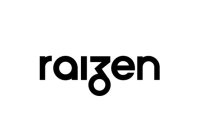
| Monday, June 20, 2011 | Archives | Advertise | Online Buyer's Guide | FLEETSolutions |
Brazil's Cosan, Shell Announce Ethanol Venture
 On June 2, Shell and Cosan launched a multi-billion dollar joint venture that will become a leading producer of the low-carbon biofuel ethanol, made from sugarcane. Named Raízen, this major retail and commercial fuels company will operate in Brazil. On June 2, Shell and Cosan launched a multi-billion dollar joint venture that will become a leading producer of the low-carbon biofuel ethanol, made from sugarcane. Named Raízen, this major retail and commercial fuels company will operate in Brazil.In one of the biggest biofuels deals to date, Raízen will produce and sell over two billion liters a year of the lowest-carbon biofuel commercially available - ethanol made from Brazilian sugarcane. Shell is already one of the largest distributors of sustainable biofuels: now it is moving for the first time into production. The deal with Cosan is a major development in Shell's strategy of investing for selective growth in its fuels business. Raízen will distribute biofuels and over twenty billion liters of other industrial and transport fuels annually through a combined network of nearly 4,500 Shell-branded service stations. In Brazil, Raízen becomes the third largest fuels company. Plans would extend the company's reach in future years to export more ethanol to other key markets. The joint venture also combines Shell's expertise and technology partnerships in advanced biofuels with Cosan's experience in the commercial production of low-carbon biofuels, increasing the potential to accelerate the commercial production of biofuels from crop waste and inedible plants. Raízen's twenty-four mills can process up to sixty-two million metric tons of cane into sugar or ethanol each year, with the flexibility to adapt to market demand. New energy policies in Europe and the USA are calling for more renewable, lower-carbon fuels for transport. Biofuels make up four percent of transport fuel in Europe, and three percent in the USA. Globally, biofuels currently meet around three percent of road-transport fuel demand. Shell expects this to rise to about nine percent by 2030. Brazil leads the world in the use of biofuels for transport. They are likely to make up more than forty percent of the country's transport fuel mix by 2030, double today's proportion. Raízen's current annual production capacity will be enough to meet nearly nine percent of Brazil's current ethanol demand. At the pump Brazilian motorists are offered the choice of pure ethanol or a blend of gasoline and ethanol. Around ninety percent of the country's new cars can run on either fuel type. Turning sugarcane into ethanol offers a number of environmental benefits over other biofuel production processes. As it grows, sugarcane generally absorbs carbon dioxide (CO2) at a greater rate than other biofuel crops such as soy. Ethanol made from Brazilian sugarcane produces around seventy percent less CO2 than gasoline, when the cultivation and production processes are taken into account. Since 2003 the use of ethanol in Brazil has avoided over one-hundred-three million metric tons of the CO2 that the gasoline it has replaced would have produced. By-products from turning sugarcane into ethanol are recycled as organic fertilizer. Plant waste, called bagasse, is burned to produce power for the processing mills and surplus energy is supplied to the national grid. To further improve productivity, Raízen will use its own advanced geographical information system to monitor its land. This allows its scientists to make accurate predictions about crop yields and adjust fertilizer or pest control, for example, to help boost production. The deal includes part of Shell's interest in the firm Iogen, which uses enzymes to break down plant waste into ethanol, as well as Shell's interest in Codexis, developers of "super-enzymes" for the faster conversion of plant waste into transport fuels. |
 |
NAFA Fleet Management Association 125 Village Blvd., Suite 200 Princeton, NJ 08540 Telephone: 609.720.0882 Fax: 609.452.8004 |






